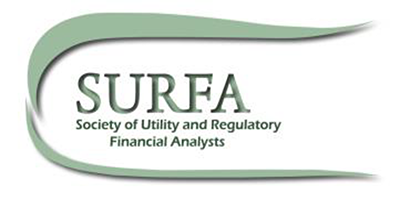9th Annual IPU Grid School
Engineering and economics of the transformation and modernization of electrical power, from generation to transmission to distribution.
About the program
IPU’S Grid School is designed to improve regulatory capacity for grid-related policy development and decision-making at all government levels in support of innovation, efficiency, and environmental goals. Grid School is open to the public and private sectors, including economic and environmental regulators. The program provides an intensive, interdisciplinary, and interactive educational and professional networking experience. Grid School is objective and rigorous, taught by knowledgeable and independent experts. This program considers the integral role of electricity grids in the energy supply chain and is designed to be responsive to new mandates and infrastructure investments associated with federal and states policies. IPU Grid School is sponsored by the Institute of Public Utilities in collaboration with MSU’s College of Engineering and Argonne National Laboratory.
IPU Grid School is open to everyone and designed for members of the federal and state regulatory policy community, including commissioners and staff members of the public utility commissions, energy and environmental agency staff, legislative staff, consumer advocates, utility personnel (public and private), engineers, planners, investors, analysts, consultants, attorneys, and others interested in learning about the electricity grid. Attendees receive a certificate of participation and credit toward a Certificate of Continuing Regulatory Education (currently available only to public sector and non-profit employees). IPU also can help arrange continuing education credits (for engineers, accountants, attorneys, and others).
Topics covered
- Fundamentals of Power Systems and Grid Infrastructure
- Fundamentals of Electricity Markets and Economics
- Intersection of wholesale and retail markets
- Grid integration for variable energy resources
- Resource modeling, planning, and mapping
- Energy storage and emerging technologies
- Integrated resource planning policy and practices
- Demand-side energy resources and their evaluation
- Distributed energy resources and their impacts
- Rate design and net metering
- Natural gas trends and role in the power sector
- Interdependency, security, resiliency, and big data
- Emerging utility and regulatory models
- Future of electricity and grids
Core program faculty
Grid School draws from knowledgeable academics and technical experts and includes:
- Mr. Galen Barbose, Energy/Environmental Policy Research Scientist/Engineer, Electricity Markets & Policy Group, Lawrence Berkeley National Laboratory
- Prof. Janice Beecher, Director, Institute of Public Utilities, Michigan State University
- Prof. David Dismukes, Executive Director, Center for Energy Studies, Louisiana State University
- Mr. Vladimir Koritarov, Deputy Director, Center of Energy, Environmental, and Economics Systems Analysis Argonne National Laboratory
- Dr. Todd Levin, Energy Systems Engineer, Center for Energy, Environmental and Economic Systems Analysis, Argonne National Laboratory
- Prof. Joydeep Mitra, Electrical and Computer Engineering, Michigan State University
- Ms. Tanya Paslawksi, Executive Director, Organization of MISO States
- Mr. Paul Proudfoot, Directory, Electric Reliability Division, Michigan Public Service Commission
- Dr. Kenneth Rose, Independent Consultant and Senior Fellow at the Institute of Public Utilities
- Dr. Chee-Wooi Ten, Associate Professor, Electrical and Computer Engineering, Michigan Technical University
- Mr. Thomas Veselka, Prinicpal Computational Engineer, Argonne National Laboratory
- Ms. Rachel Wilson, Senior Associate, Synapse Energy Economics, Inc.
Program learning objectives
- To understand the basic engineering based form and function of electricity grids.
- To understand energy market structures and economics in relation to electricity grids..
- To review regulatory policy and planning concerns related to grid infrastructure and operation.
- To improve evaluation of contemporary grid issues, including intelligence and security.
- To engage in a peer-to-peer educational and networking opportunity.
Program Level: The program is classified as “advanced.” It is best for experienced professionals who have attended one or more of the courses classified as basic or intermediate.
Program Prerequisites: No formal prerequisites apply to this program. However, attendees are strongly encouraged to attend only after participating in one or more of the basic or intermediate courses. Some professional experience is also helpful. Preparatory resources are available on the IPU website on the URS program page as well as the IPU research page.
Program Delivery: The program delivery method is classified as a “group-live” event and consists primarily of lectures by experienced professionals, including examples and opportunity for discussion. Active learning and participation are encouraged. Instructors are accessible for individual assistance throughout the program.
More information
Cancellation and Refunds: Cancellations are generally accepted until one week before the program. Substitutions are accepted at any time. Program fees may be applied toward a future program or refunded.
Comments and Complaints: IPU welcomes program input and feedback. Participants will be asked to complete program evaluation forms. Comments and complaints about the program may be directed to IPU Director, Dr. Janice A. Beecher ([email protected]).
NASBA National Registry Statement: The Institute of Public Utilities is registered with the National Association of State Boards of Accountancy (NASBA) as a sponsor of continuing professional education on the National Registry of CPE Sponsors. State Boards of Accountancy have the final authority on the acceptance of individual course for CPE credit. Complaints regarding registered sponsors may be submitted to the National Registry of CPE Sponsors through its website: www.nasbaregistry.org.
This program is relevant to the following NASBA fields of study: administrative practice, accounting and auditing (corporate and governmental), business law, economics, finance, taxes, regulatory ethics, and specialized knowledge and applications.
Testimonials
Don’t just take our word for it, hear what past Grid School attendees think about the program.
- “I appreciated the relevance of the presentations, covering current emerging topics for the electric utility industry.”
- “The best training I have attended. Congrats!”
- “Great information, knowledgeable presenters, wonderful facilities-keep it up!”
- “High level and detailed look at various parts of the grid system.”
- “I appreciated the material was presented in a unbiased manner.”
- “A very good program with highly qualified teachers. It was a privilege to be a part of.”
|
